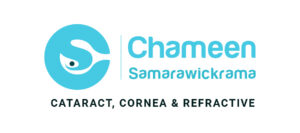
When we consider healthy eating, we often first think about weight control, heart health, or even radiant skin. Your diet also plays a crucial role in your eyesight, as the food you consume today can affect the way you see tomorrow.
In this blog, we will explore the science of nutrition and eye health, review some of the important nutrients for eye health, and then see how you can create a diet that is supportive of your vision, all backed by eye health and nutrition research.
How Diet and Vision Are Connected
Your eyes are living metabolic tissues, requiring continuous vitamins, antioxidants, and healthy fats to function optimally. The retina processes light and sends signals to your brain. It is particularly vulnerable to oxidative stress and implicated in age-related eye diseases. Research published in journals such as Nutrients and Ophthalmology confirms that a poor diet increases your risk for:
- Age-related macular degeneration (AMD)
- Cataracts
- Dry Eye Syndrome
- Diabetic retinopathy
- Night blindness
Meanwhile, the right dietary choices can delay or even help prevent these conditions.
7 Nutrients That Support Healthy Vision
1. Lutein and Zeaxanthin
These are carotenoids are found in the retina and lens, acting as natural “internal sunglasses” by filtering harmful blue light. They also neutralize oxidative stress.
- Found in: Spinach, kale, broccoli, corn, egg yolks
- Tip: Tip: Lightly steam greens for better absorption
2. Vitamin A
Essential for producing rhodopsin, the pigment that allows you to see in low-light conditions. A deficiency in vitamin A can lead to night blindness.
- Found in: Carrots, sweet potatoes, pumpkin, liver
- Warning: Be cautious with supplements—overdosing on vitamin A can be toxic.
3. Vitamin C
A powerful antioxidant that protects the eye’s lens and blood vessels, reducing your risk of cataracts and macular degeneration.
- Found in: Oranges, berries, kiwi, capsicum, tomatoes
- Fun fact: The highest concentration of vitamin C in the body is found in the aqueous humor of the eye.
4. Vitamin E
Protects cells in the retina from free radical damage, especially when combined with vitamin C and zinc.
- Found in: Almonds, sunflower seeds, olive oil, avocados
5. Zinc
Helps transport vitamin A from the liver to the retina and is vital for enzyme function in the eye.
- Found in: Oysters, beef, chickpeas, lentils
6. Omega-3 Fatty Acids (DHA & EPA)
DHA is a major structural fat in the retina. Omega-3s support tear production and reduce inflammation, making them essential for dry eye relief.
- Found in: Fatty fish (salmon, sardines, tuna), flaxseeds, chia seeds
- Local tip: Consider fish oil supplements if your diet lacks seafood, especially in landlocked areas like Blacktown.
7. Anthocyanins
These flavonoids improve night vision and blood circulation in ocular tissues.
- Found in: Blueberries, blackcurrants, grapes, purple cabbage
Foods That May Harm Your Eyes
Some foods accelerate oxidative damage or inflammation, worsening your eye health over time.
- Excess sugar and refined carbs: Can spike blood sugar and increase the risk of diabetic retinopathy.
- Trans fats: Found in processed snacks and margarine; linked to poor circulation in tiny blood vessels like those in the retina.
- High-sodium diets: May increase intraocular pressure and the risk of glaucoma.
The Mediterranean Diet: A Gold Standard for Vision
Numerous studies, including those published in the American Journal of Clinical Nutrition, highlight the Mediterranean diet—rich in vegetables, olive oil, fish, and nuts—as highly protective against age-related macular degeneration.
If you live in active suburbs like Norwest, where weekend markets and health cafes are abundant, adopting this diet is both practical and delicious.
FAQ
Q1: Can I get all eye nutrients from food or should I take supplements?
A balanced diet can often meet your needs. However, people at risk of AMD may benefit from AREDS2 supplements. Always consult an eye specialist first.
Q2: Are carrots good for my eyes?
Yes, but mostly because of their beta-carotene (a precursor to vitamin A). They’re beneficial but shouldn’t be your only source of nutrients.
Q3: How soon can dietary changes improve my vision?
Some effects, like reduced dry eye symptoms, can appear within weeks. Long-term protection (e.g. from macular degeneration) builds over the years.
Q4: Is coffee bad for eye health?
Moderate coffee intake (1–2 cups/day) may actually reduce the risk of retinal damage. However, excessive caffeine may affect intraocular pressure.
Q5: What diet tips help with screen-related eye strain?
Hydrating foods like cucumbers and watermelon can reduce dry eye symptoms. Also include omega-3s and zinc to support tear film quality.
When to See a Specialist
If you’re experiencing symptoms like dry eyes, blurred vision, or trouble seeing at night—diet alone may not be enough. A thorough eye exam is essential.
Professor Chameen Samarawickrama, a leading Sydney Based Consultant Eye Surgeon, provides expert diagnostics and advanced treatment options, especially for patients in Blacktown, Norwest, and surrounding suburbs.
His expertise in retinal care, laser eye surgery, and dry eye management makes him a trusted choice for patients looking to take a proactive approach to vision and nutrition. Visit drchameensams.com.au to learn more or book an appointment.
Final Thoughts
Yes, what you eat impacts the way you see. By building a diet rich in eye-protective nutrients and cutting out harmful foods, you’re not just improving your general health—you’re preserving your vision for the future.
Whether you’re shopping at Norwest Marketown or cooking for your family in Blacktown, every food choice is an investment in your sight.

I like it topic